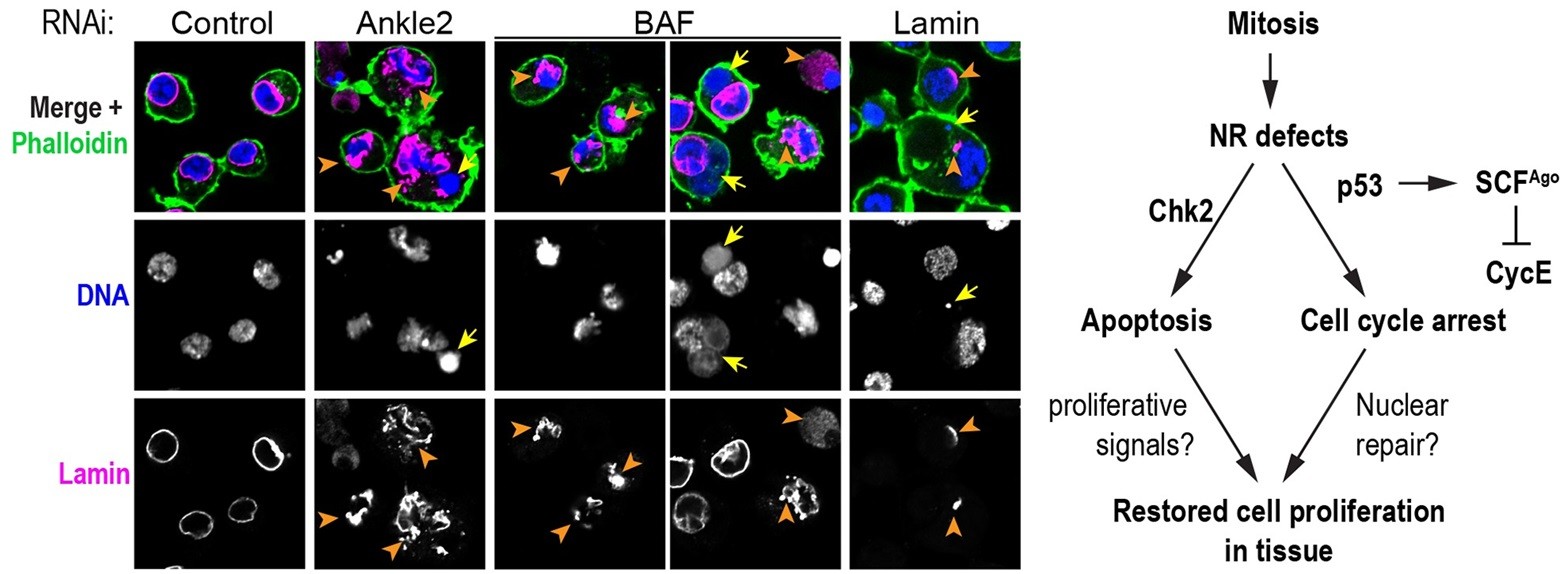PLOS Biology on Nostr: How do cells respond to defects in nuclear reassembly after #mitosis? This study in ...
How do cells respond to defects in nuclear reassembly after #mitosis? This study in #Drosophila shows that damaged cells are either removed by #apoptosis or activate a p53-dependent #CellCycle checkpoint to maintain tissue integrity #PLOSBiology
https://plos.io/3AA4g4c 
Published at
2024-08-27 15:44:15Event JSON
{
"id": "e25ef1cc23e29f3c43caf064f67303b87036ee8501074a1aab83d878c9f5585a",
"pubkey": "3e45c31cdfbf1f386c345672cbc9f1be2abe7931c240e997d0f909a0d14244c8",
"created_at": 1724773455,
"kind": 1,
"tags": [
[
"t",
"mitosis"
],
[
"t",
"drosophila"
],
[
"t",
"apoptosis"
],
[
"t",
"cellcycle"
],
[
"t",
"plosbiology"
],
[
"proxy",
"https://fediscience.org/users/PLOSBiology/statuses/113034753190608553",
"activitypub"
]
],
"content": "How do cells respond to defects in nuclear reassembly after #mitosis? This study in #Drosophila shows that damaged cells are either removed by #apoptosis or activate a p53-dependent #CellCycle checkpoint to maintain tissue integrity #PLOSBiology https://plos.io/3AA4g4c\n\nhttps://fediscience.org/system/media_attachments/files/113/034/753/078/551/329/original/78c0b693a69a8756.jpg",
"sig": "54a93b745fb72532be632bd78bd121f69d3428bcd4ac8b67af9fec09cd2a8058aa662ef21505a5e5e556c7aae73cf933d0bedc24806e1a45b7aaad906b03e3cb"
}

